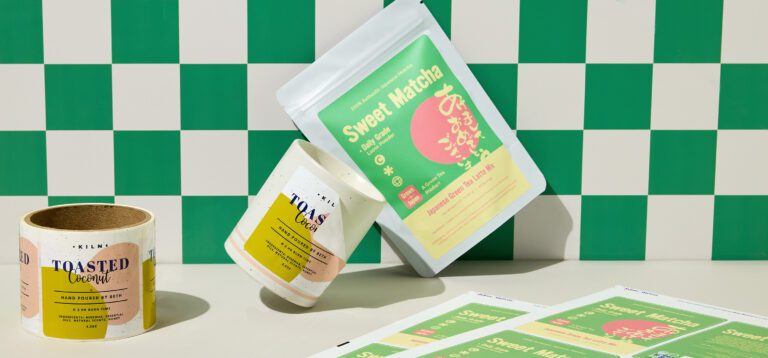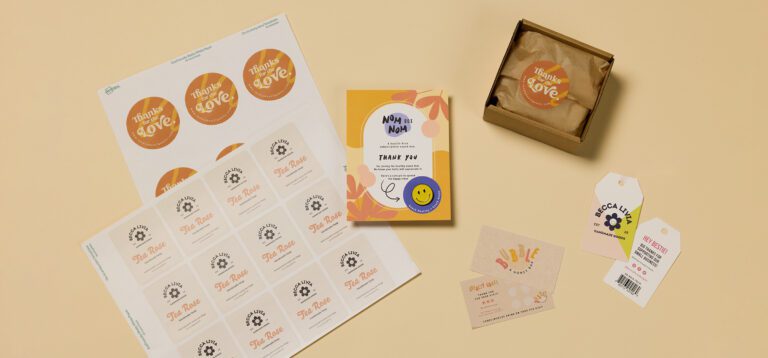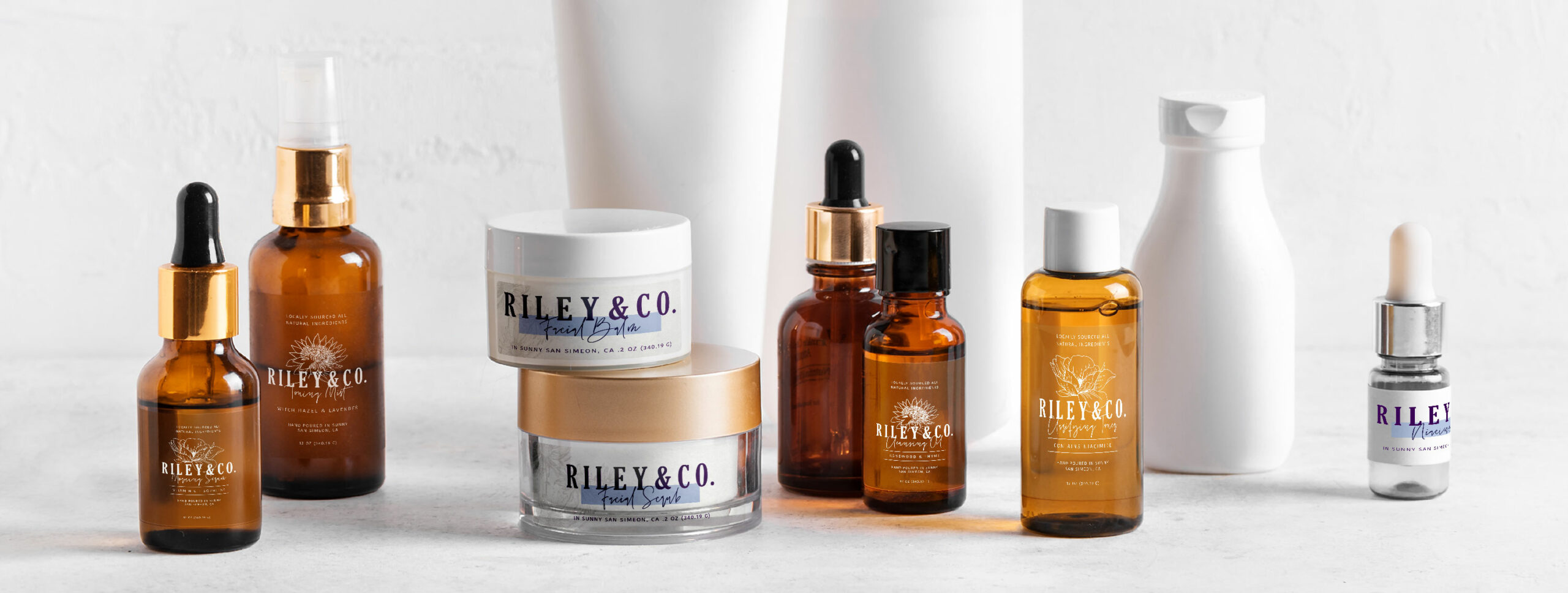
White Label vs. Private Label Products
Estimated reading time: 6 minutes
What’s the difference between private label manufacturers and white label products?
Other articles you might like:
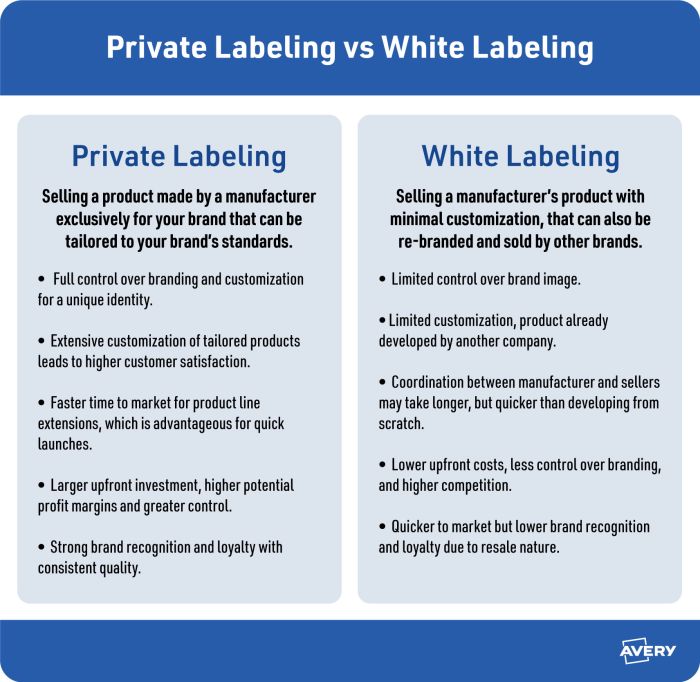
White labeling and private labeling are options for expanding a product line without creating or expanding production facilities. This option can help create a full product line for small- and medium-sized businesses without overextending the company. In this article, we’ll explain the difference between white label and private label, along with where each could best serve your business.
When you’re ready to make a move with either white labeling or private labeling, remember Avery offers you everything you need for your products. Choose from our professionally printed product labels or blank printable labels. Then complete your marketing suite with custom cards and tags to give you a coordinating look throughout your marketing and product line.
What are white label products?
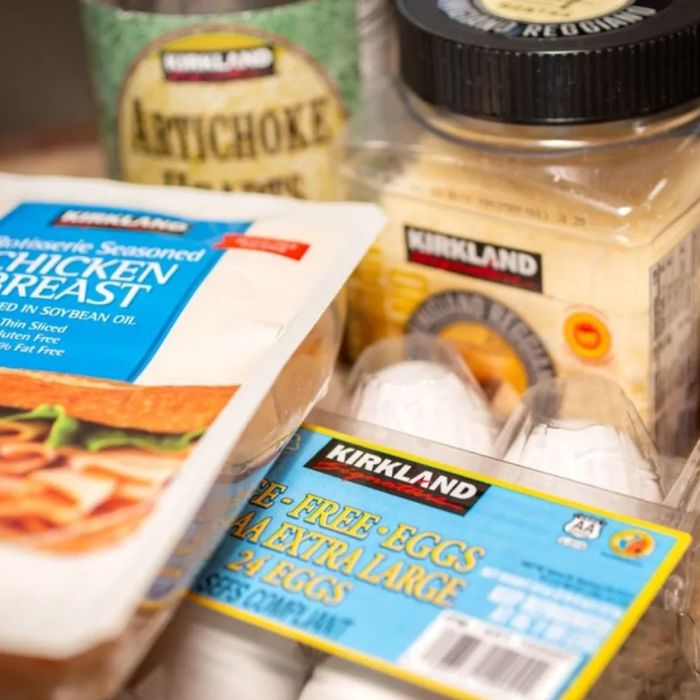
White labeling is a process where a lab or other manufacturing facility creates batches of a product using its own formulas. Your company then purchases these products and applies your branding to them before selling them. Kirkland brand is a perfect example of white labeling, with many big brands like Starbucks and Duracell actually manufacturing the products for Kirkland.
White labeling is entirely legal, and generally, the practice is widely accepted in various industries. However, when people think of white labeling, they often think of the cosmetics industry. White label manufacturers offer many unique advantages to companies like yours and finding a solid supplier can transform your business.
What are private label products?
Private labeling is the practice of working with a manufacturer to create a custom formulation to produce products for your company. Your business retains exclusivity to the product and it saves you from setting up the manufacturing.
Private label manufacturers will not only help you refine the formula but offer the expertise to fast-track development. Private labeling offers numerous benefits to businesses, and it can change how you do business.
Now let’s dig into the benefits of white labeling and private labeling and how they can benefit your growing business.
Personalized branding
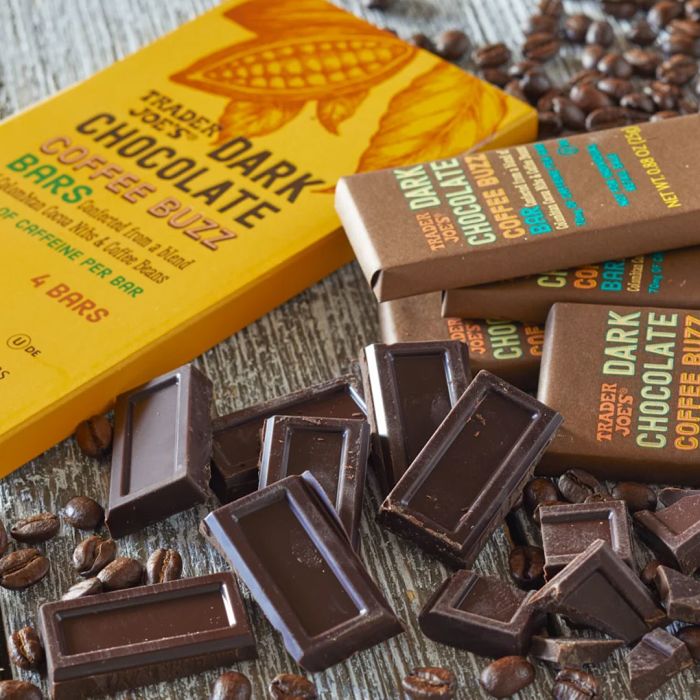
With white labeling, your company can still brand each product to match the rest of your company’s products. Typically, white label products are available in standard sizes and formulations to make this process easier. Whether you want to make a separate product line using white label products or mix them with your company’s line, consistent branding is the key to sales.
Private labeling has a slight advantage for branding, as you can dovetail the formula and design it to match your company’s specifications. However, this is rarely something consumers notice. Working with a private label manufacturer generally allows you to customize everything about the product, from the packaging types to the design. You may even be able to negotiate with the producer to apply your branding elements before shipping.
Product control
Private labeling offers more control over products than white labeling. With private labeling, your company works with the producer to develop a custom formula manufactured exclusively for you. That kind of control is unmatched unless you put up the production facilities yourself.
White labeling uses standard formulations you can’t control or request modifications to, giving you less say over the product and its ingredients.
Cost-effectiveness
White labeling is generally less expensive than private labeling. White label manufacturers have already completed the research and development on the products and produced them. So, there are no initial capital outlays before you have a workable product. The producer can also make vast batches for multiple companies at once. This batch manufacturing keeps the cost low for the producer, and that is passed on to your company.
Of course, there are still costs associated with white labeling. Generally, white label producers maintain competitive pricing on the various products but the pricing may be a little higher than producing the products yourself.
Private labeling, on the other hand, has more expenses. Not only do you need to pay for the research and development, but you’re also paying the producer to source specific ingredients and make the batch size you need, plus any extras you negotiated.
You may also find that private label product producers are more efficient to contract with than building up your own team and presence. Particularly when you have high demand, labor, parts, and facilities can truly add up quickly if you try to do it yourself.
Flexibility
Private labeling and white labeling both offer different types of flexibility. With white label products, since the manufacturer is making batches for several companies, the minimum order quantities tend to be lower, and orders generally require less lead time. The manufacturer has already completed the research and development, product testing, and required legal documentation. With less lead time, you can better respond to the changing market conditions in your niche. This responsiveness can be a game-changing advantage over your competition.
Private labeling offers more flexibility with the actual products, which is critical to addressing market trends. Private label products use a formula or design exclusive to your company, making them unique. A private label producer will not share your formula, so you can rest assured your trade secrets are safe. This exclusivity is a significant differentiator from white labeling. Since the product is exclusive, you have more unique opportunities to reach your market, tailor your product, and generally improve your profit margin.
What solution is best for your business?
White labeling and private labeling offer unique situations for your business and can bring enormous benefits. However, it’s essential to be realistic about your company’s capacity and customer base to make the best decision.
Both options can be viable for your business, provided they fit with your product line and processes. Each offers unique advantages without the capital outlay for your own production facilities and warrants serious consideration for your business.
Once you’ve made the decision, let Avery help you with all your actual product labeling. Whether you want to order professionally printed labels or blank labels you can print yourself, Avery has an option that will work best for your production.
Please feel free to call our Customer Care Team at (800) 942-8379. They will be happy to help you pick the best labels and materials for your products.

